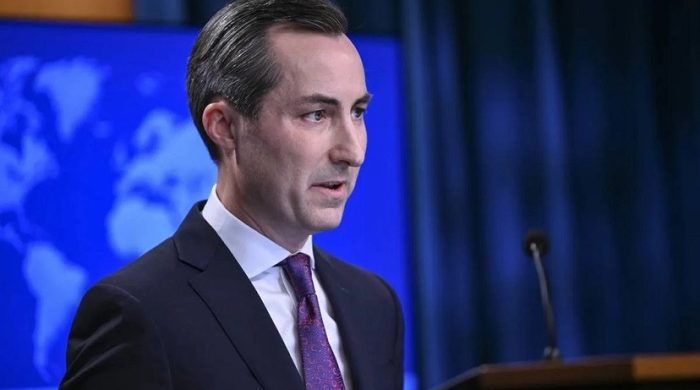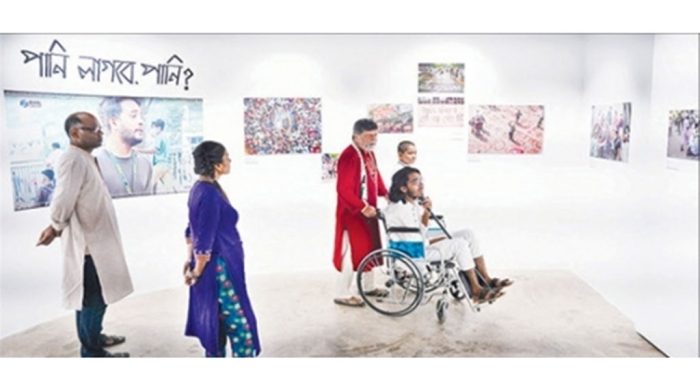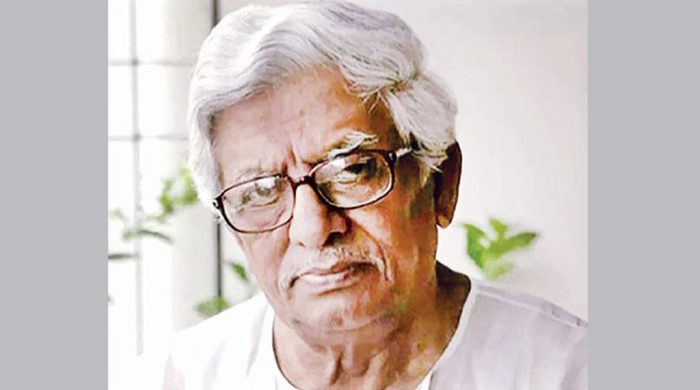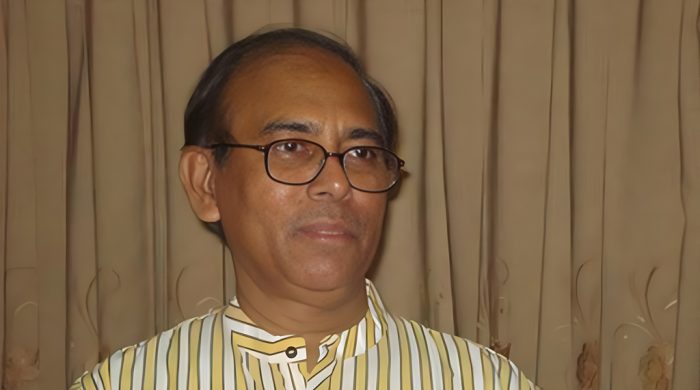8th episode of Mujib Graphic Novel to be unveiled this evening

- Update Time : Sunday, February 7, 2021
- 182 Time View
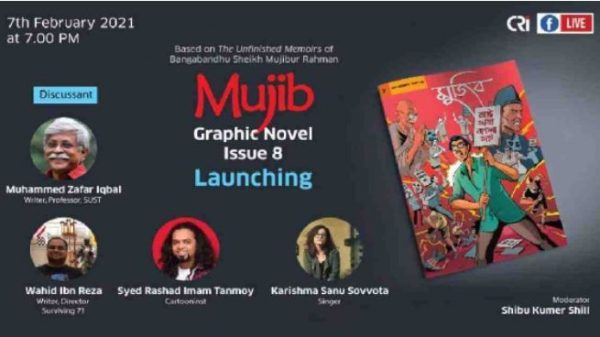
The eighth episode of Mujib Graphic Novel, a series knitting the life stories of Father of the Nation Bangabandhu Sheikh Mujibur Rahman, will be unveiled on Sunday evening.
The publication by policy think tank Centre for Research & Information (CRI) is geared towards informing children of the transformation of Mujib from an ordinary schoolboy to the Father of the Nation.
This coming episode will tell the stories of the language movement (which is now celebrated across the world as the International Mother Language Day) and the role of Mujib in that struggle.
A live webinar of the official Facebook pages of CRI and its youth wing Young Bangla will air the unveiling of the episode at 7pm on Sunday.
Eminent litterateur and educationist Zafar Iqbal, writer, and Surviving-71 director Wahid Ibn Reza, Mujib Graphic Novel cartoonist Syed Rashad Imam Tanmoy, and singer Karishma Sanu Sovvota will join the webinar.
This episode set out with a historic event where the constituent assembly of Pakistan, in February 1948, rejected the bill to recognize Bangla as one of the official languages.
Protesting that conspiracy, Bangabandhu took part in a movement on behalf of the East Pakistan Student League.
Merging with Tamaddun Majlish, he formed the Rashtrabhasha Sangram Parishad (National Language Action Committee), which led a strike, the first of its kind in independent Pakistan, to press the demand for language.
Sheikh Mujibur Rahman and his fellow leaders were at the forefront of enforcing the strike, planting the seed of language movement deep down the heart of people, said a press release.
This installment of the series weaves the stories of the partition of India, Bangabandhu’s meeting with Mahatma Gandhi, language movement, and imprisonment.
Earlier, the first episode captured the imagination of children by exposing them to exciting real-life stories of Bangabandhu such as his enthusiasm for sports, imprisonment for the first time, and the unwavering stance for the ideals he lived by since his childhood.
The second installment picks up the events of his intimacy with Huseyn Shaheed Suhrawardy alongside his initiation into politics.
The next episode touched upon his humanitarian aspects during his school and college days – social and political activities and reaching out to people at the time of famine.
His tours of the heritages in Delhi following the All India Muslim League Conference and his role in the 1944-student league conference were narrated in the fourth installment.
The fifth episode of ‘Mujib’ depicted how he was denied his deserved post in Student League despite his surging popularity, how power slipped into the hand of the British Governor owing to a series of factors including the Second World War, black marketing by some vested quarter centering the war, and some MLAs and Khan Bahadurs vying for power. These events deeply stirred Bangabandhu.
Bangabandhu’s stance against the moves of Khwaja Nazimuddin was portrayed in the sixth installment.
In a nutshell, how a child with an ordinary upbringing in Tungipara of Gopalganj district ended up being the architect of a country’s independence and future was penned and portrayed in Mujib Graphic Novel.
The seventh episode visualized the bleak picture of the famine that ripped people’s lives.
Mujib Graphic Novel is being published in a series in English and Japanese languages alongside Bangla.





